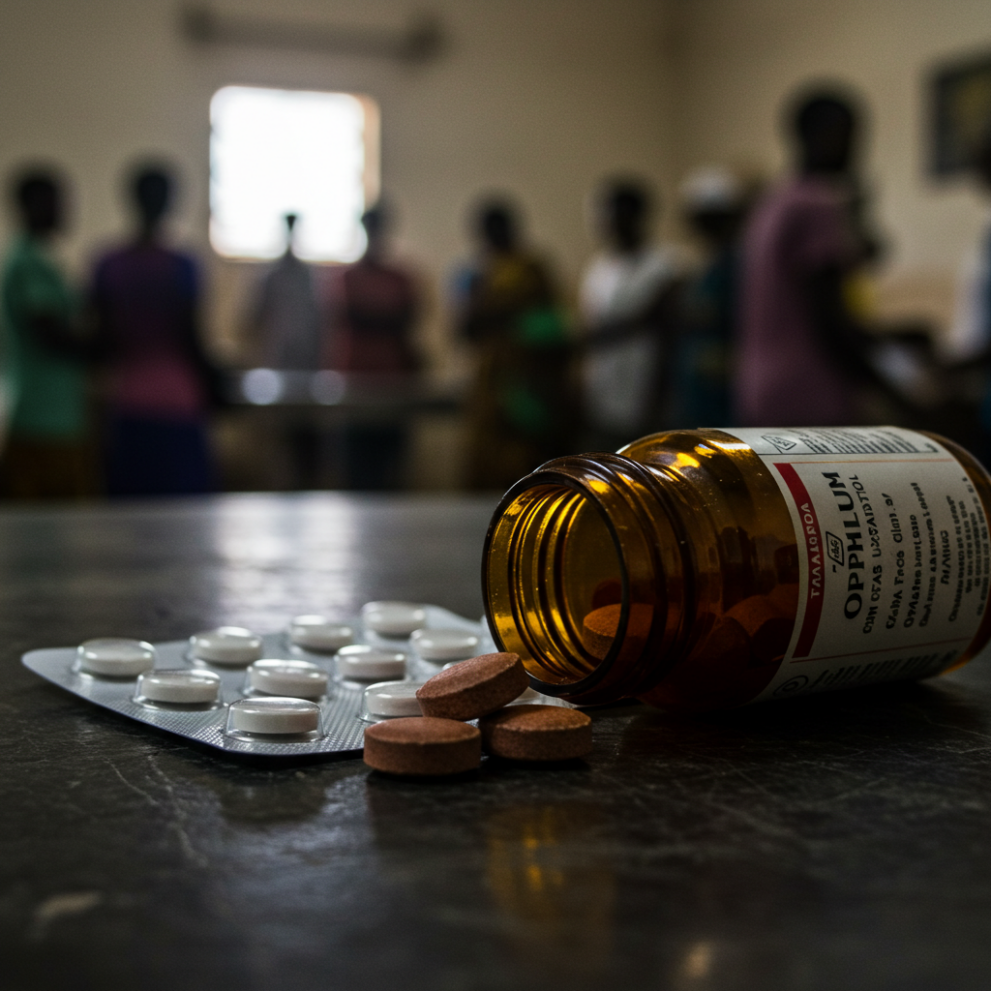For nearly a decade, Ghana has grappled with an opioid epidemic that continues to deepen, drawing alarm from public health experts and community leaders alike. Tramadol and other synthetic opioids have infiltrated every corner of the nation’s markets, transforming once innocuous pain management practices into pathways for widespread addiction. What began as isolated incidents of misuse has now spread into a full-blown public health emergency, compelling stakeholders to recognize that the time for half-measures has passed.
Dr. Kwame Sarpong Asiedu, a Health Fellow at CDD-Ghana, warns that Ghana is “failing our youth” by allowing the crisis to escalate unchecked. He traces the current emergency back to 2015, when high-dose tramadol pills—ranging from 120 to 250 milligrams—entered the local pharmaceutical supply with minimal oversight. From that point onward, consumption soared, as young drivers, students, and labourers turned to opioids not only to dull physical pain but also to cope with mounting economic pressures and stress.
Government efforts to reframe drug use as a health issue gained traction in 2020, when Parliament passed the Narcotics Control Commission Act. However, five years later, the law’s promise remains largely unfulfilled on the ground. Drug seizures reflect both the scale of illicit trafficking and the inadequacy of current controls: quantities confiscated leapt from 8,700 kilograms in 2020 to nearly 60,000 kilograms by 2022. Such figures expose not only a booming black market but also a growing population of dependent users.

Despite legislative progress, harm-reduction infrastructure has barely kept pace with the crisis. As of last year, Ghana operated just a single opioid treatment centre—an insufficient response to a burgeoning problem. Meanwhile, courts continue to criminalize users rather than diverting them into treatment programmes, indicating a policy-implementation gap that perpetuates stigma and limits access
to care. Families find themselves helpless as breadwinners and children slip into dependency, watched over by a system more inclined to punish than to heal. Dr. Asiedu insists that the next twelve months are pivotal if Ghana is to avert deeper tragedy. His blueprint begins with the establishment of treatment hubs in six major hospitals, each equipped with clear protocols for diagnosing and managing opioid dependence.
Crucially, he calls for the strategic placement of antidotes—such as naloxone—in ambulances, community pharmacies, and police stations, ensuring that overdose reversals can occur without delay. An expansion of outreach programmes is also essential, he argues, proposing integrated services that link opioid treatment with HIV and tuberculosis testing, counselling, and safe-space support for users.
Addressing supply chains remains equally urgent. Dr. Asiedu urges authorities to tighten controls at seaports and airports, clamp down on online sales of controlled substances, and end the open-air peddling of tramadol in local markets. Without a concerted supply-side crackdown, demand-reduction interventions risk being undermined by a steady influx of illicit drugs. He further recommends the creation of a national overdose registry to track incidents in real time and the allocation of dedicated funding for an Opioid Response Unit within the National Health Insurance Scheme.
The potential impact of these measures is profound. Dr. Asiedu projects that success would mean stabilizing at least 4,000 individuals on medically supervised treatment, distributing 10,000 antidote kits into high-risk communities, and reducing emergency opioid cases in Accra and Kumasi by at least 30 percent within a year. These targets underscore the feasibility of reversing the current trajectory, provided that political will and financial resources align with public health imperatives.
Yet for all these plans, Dr. Asiedu delivers a sobering verdict: “Ghana has the law, but not the action. If we keep waiting, more lives will be lost. It is time to treat opioid dependence as a health crisis and not a crime”. His words resonate as a stark call to arms, demanding that policymakers, health practitioners, and civil society transcend rhetoric and deliver tangible solutions.
The opioid crisis poses an existential test for Ghana’s health sector and governance structures. As communities watch their loved ones fall victim to addiction and its social fallout, the nation must choose between sustained inaction and decisive intervention. The coming months will determine whether Ghana can marshal the leadership, funding, and cross-sector collaboration necessary to bend the curve of opioid dependence—or whether it will continue to watch a generation slip into the grips of substance abuse with few avenues for recovery.
Source: Ghana’s Opioid Crisis Demands Urgent National Action



